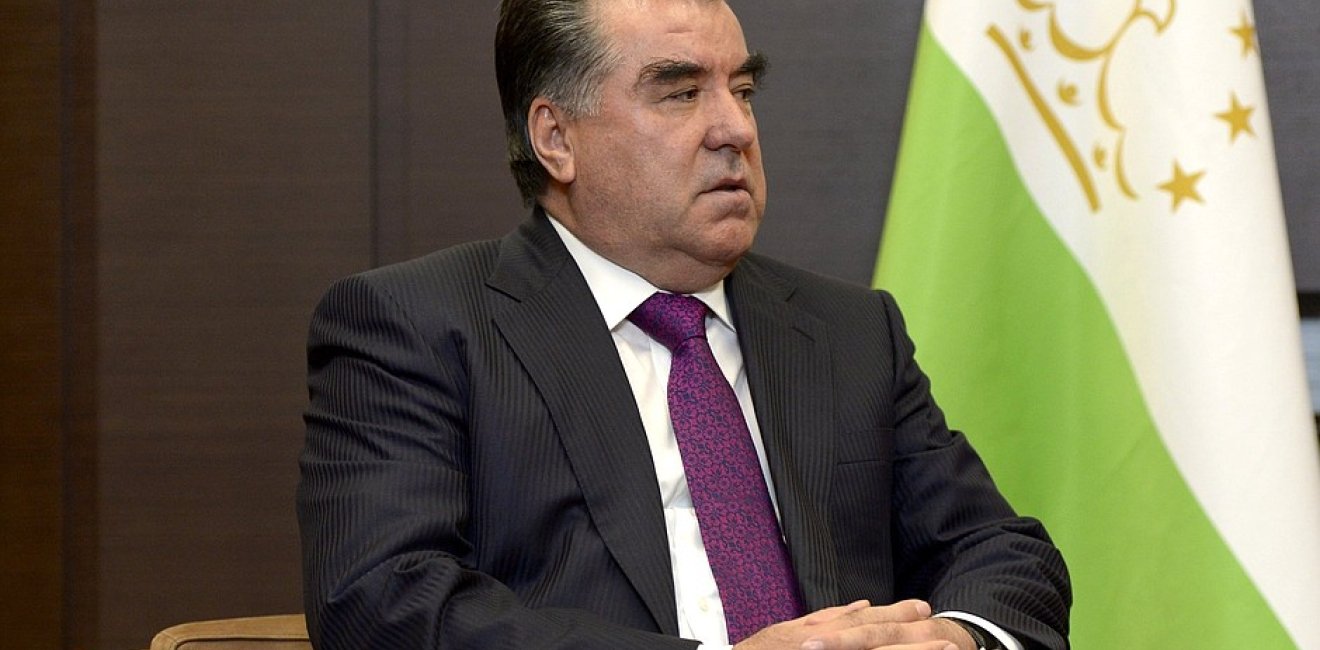While many regional observers have long discussed transition in Kazakhstan, where 78-year-old President Nursultan Nazarbayev (who has ruled since 1989) seems to be thinking about succession, further south in Tajikistan transition has also become the talk of the town. President Emomali Rahmon turned 66 years old on October 5. The former collective farm boss has proven remarkably resilient since coming to power at the height of the country’s civil war in November 1992. He has outmaneuvered his rivals and built an authoritarian state centered on his powerful extended family who dominate politics and business. Now Tajikistan’s kleptocratic ruler is seeking to keep his family in its lucrative position.
Rahmon seems to be modelling his transition on the experiences of hereditary authoritarian regimes such as Singapore, Azerbaijan, and Syria. In 2016, constitutional amendments made Rahmon “Leader of the Nation,” abolishing term limits and rendering him immune from prosecution for life. If he does step down as president he could follow Singapore’s Lee Kuan Yew, who became Minister Mentor after handing the prime minister’s position to his son Lee Hsien Loong in 2004. Such a position would allow Rahmon to continue to mentor the new leader, address the nation, attend government meetings, wield veto power and represent the country abroad.
Like leaders in Azerbaijan, Syria, Singapore and North Korea, Rahmon favors transferring power to one of his nine children. Two potential successors have emerged. The 2016 constitutional amendments lowered the minimum age a citizen could be elected president to 30 years old. As of December 2017, this made Rahmon’s eldest son, Rustam Emomali, eligible to run. A former soccer star and playboy known for his taste for sports cars, Rustam has risen rapidly through the ranks of government. He has headed the Customs Service, the anti-corruption agency, and then became mayor of the capital city, Dushanbe, in January 2017, all before he turned thirty. Most recently, he was seen greeting foreign leaders attending the CIS Summit in Dushanbe in late September, an honor usually restricted to the prime minister. Rustam Emomali’s tenure as mayor of the capital, featuring the popular renovation of various parks and the introduction of new buses, has boosted his image as a leader. But his lack of talent as a public speaker, his reputation as a playboy, and his limited knowledge of Tajik may count against him.
His sister, 40 year-old Ozoda, is the more experienced and capable politician. She joined Tajikistan's Ministry of Foreign Affairs in 2007, rising through the ranks to become First Deputy Minister in 2014. In a move some saw as indicating that Ozoda is a potential successor, her father appointed her his chief of staff in January 2016. Ozoda appears to have a greater aptitude for managing the elite and has a better command of Tajik than her Russian-speaking brother. Tajik society remains patriarchal. State discourses on the nation frame it as a family, ruled over by the benevolent father figure Rahmon. Whether society would accept a woman as president remains to be seen. But in authoritarian Tajikistan, the population lack a voice in politics and tend to accept the status quo, making it likely that they will accept whatever the “Leader of the Nation” decides.
Rumors are swirling about the date of the announcement of transition. The next presidential election is scheduled for 2020, but some speculate that it could be pushed forward to avoid a clash with the parliamentary elections scheduled for the same year. Either way, change does seem to be coming to Tajikistan’s leadership. But even if the leadership changes, do not expect the system to change with it.
Author

President, Oxus Society for Central Asian Affairs; Research Assistant Professor, The Bush School of Government and Public Service, Texas A&M University (Washington, D.C. Teaching Site)

Kennan Institute
After more than 50 years as a vital part of the Wilson Center legacy, the Kennan Institute has become an independent think tank. You can find the current website for the Kennan Institute at kennaninstitute.org. Please look for future announcements about partnership activities between the Wilson Center and the Kennan Institute at Wilson Center Press Room. The Kennan Institute is the premier US center for advanced research on Eurasia and the oldest and largest regional program at the Woodrow Wilson International Center for Scholars. The Kennan Institute is committed to improving American understanding of Russia, Ukraine, Central Asia, the South Caucasus, and the surrounding region through research and exchange. Read more





